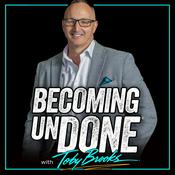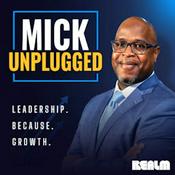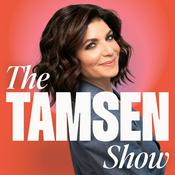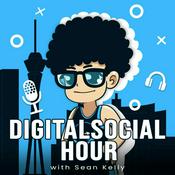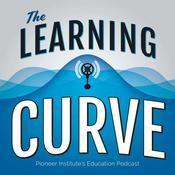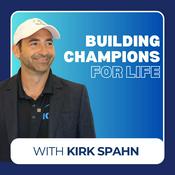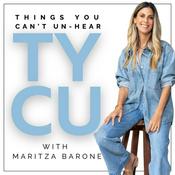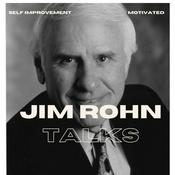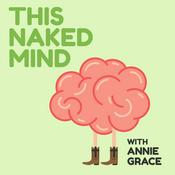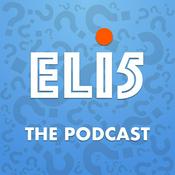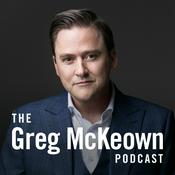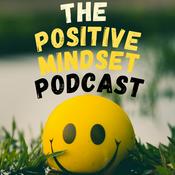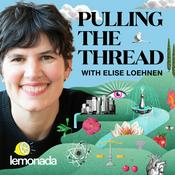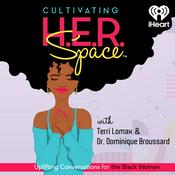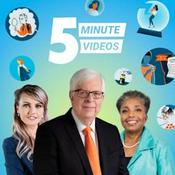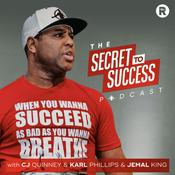49 episodes

Eating For Your Brain (Even When You’re Down) with Nutritional Psychiatrist Brooke Resche, MD
1/05/2026 | 59 mins.
On this episode of HBP, we interview Brooke Resche (CookwithDrBrooke on TikTok and Instagram) and answer some of your questions of how to feed yourself to help your brain, even when struggling with ADHD, Depression, Anxiety, or stress. We get into concrete strategies for each difficulty one might have with getting meals together and eating, and talk with Dr. Brooke about tips she uses with patients and how to talk about food and food habits. Join Patreon Here: https://www.patreon.com/c/howtobepatientpod -- Want more Amanda Stuckey Dodson All socials: @nestingyourlife -- Watch on YouTube: @itspresro Listen Anywhere You Podcast: Apple, Spotify, PodChaser, etc. — Produced by Dr Glaucomflecken & Human Content Get in Touch: howtobepatientpod.com Learn more about your ad choices. Visit megaphone.fm/adchoices

The Dementia Episode
12/29/2025 | 1h 12 mins.
In this episode, Margaret and I do our best to define the elusive diagnosis of dementia. We describe what the actual clinical definition of the cognitive disability is, explore the most common types of diseases that can cause dementia, and how to pick up on them clinically, especially when they start to look like other illnesses. Join Patreon Here: https://www.patreon.com/c/howtobepatientpod -- Want more Amanda Stuckey Dodson All socials: @nestingyourlife -- Watch on YouTube: @itspresro Listen Anywhere You Podcast: Apple, Spotify, PodChaser, etc. — Produced by Dr Glaucomflecken & Human Content Get in Touch: howtobepatientpod.com Learn more about your ad choices. Visit megaphone.fm/adchoices

Concrete Self-Care in Hard Times with Amanda Stuckey Dodson
12/22/2025 | 1h
It’s one thing to think about optimal routines, and the internet is often very fixated on the “best”, but what about when you’re stressed, burnt out, or struggling with your mental health? On this episode, we have a conversation with clinical social worker and life skills specialist Amanda Stuckey Dodson to discuss how to care for yourself or someone you love when motivation, health, or just general stress have taken over. This episode centers on all the skills, tools, and mindsets she writes about in her new book, out now, Tidying the Abyss, and on her TikTok and Instagram @nestingyour life. Join Patreon Here: https://www.patreon.com/c/howtobepatientpod -- Want more Amanda Stuckey Dodson All socials: @nestingyourlife -- Watch on YouTube: @itspresro Listen Anywhere You Podcast: Apple, Spotify, PodChaser, etc. — Produced by Dr Glaucomflecken & Human Content Get in Touch: howtobepatientpod.com Learn more about your ad choices. Visit megaphone.fm/adchoices

Your Brain on AI: Interview with MIT Media Lab’s Nataliya Kosmyna
12/15/2025 | 1h 11 mins.
Today, we present to you our first Journal Club episode, in which we feature a primary author of an important piece of research. Online, content supercedes context, and when it comes to emerging hypothesis around big topics–like AI–this loss of context can lead to polarizing views. Today, we are excited to share a longer form interview with one of the leads of the MIT Media Lab’s study that was published as a pre-print this summer: Your Brain on ChatGPT. Join Patreon Here: https://www.patreon.com/c/howtobepatientpod Citations: Primary Paper and FAQ’s from MIT team : https://www.brainonllm.com/ Unesco 2025 ethics of neurotechnology draft: https://unesdoc.unesco.org/ark:/48223/pf0000394866/PDF/394866eng.pdf.multi -- Want more Nataliya Kosmyna: https://x.com/nataliyakosmyna ; https://www.linkedin.com/in/nataliekosmina/ ; https://www.instagram.com/nataliyakosmyna/ ; https://mastodon.social/@nataliyakosmyna and @nataliyakosmyna.bsky.social . -- Watch on YouTube: @itspresro Listen Anywhere You Podcast: Apple, Spotify, PodChaser, etc. — Produced by Dr Glaucomflecken & Human Content Get in Touch: howtobepatientpod.com Learn more about your ad choices. Visit megaphone.fm/adchoices

Food Fears, Myths, and Mental Health
12/08/2025 | 53 mins.
Welcome back for season 3! For our first episode, we have on a food scientist to discuss from the industry side food myths, which we combine with our own readings from the psychiatry literature. We touch on red dye 40, the minerals in the soil, and how to slow down information from social media grocery store aisle walkers. For our bonus section with Hydroxide, check our Patreon, where this season we will have bonus segments for each episode! Funding through patreon lets us make this podcast sustainable. Join Patreon Here: https://www.patreon.com/c/howtobepatientpod -- Want more Hydroxide: All socials: @hydroxide.foodscience -- Watch on YouTube: @itspresro Listen Anywhere You Podcast: Apple, Spotify, PodChaser, etc. — Produced by Dr Glaucomflecken & Human Content Get in Touch: howtobepatientpod.com Learn more about your ad choices. Visit megaphone.fm/adchoices
More Education podcasts
Trending Education podcasts
About How to Be Patient
Listen to How to Be Patient, Life Kit and many other podcasts from around the world with the radio.net app
Get the free radio.net app
- Stations and podcasts to bookmark
- Stream via Wi-Fi or Bluetooth
- Supports Carplay & Android Auto
- Many other app features
Get the free radio.net app
- Stations and podcasts to bookmark
- Stream via Wi-Fi or Bluetooth
- Supports Carplay & Android Auto
- Many other app features

How to Be Patient
download the app,
start listening.



